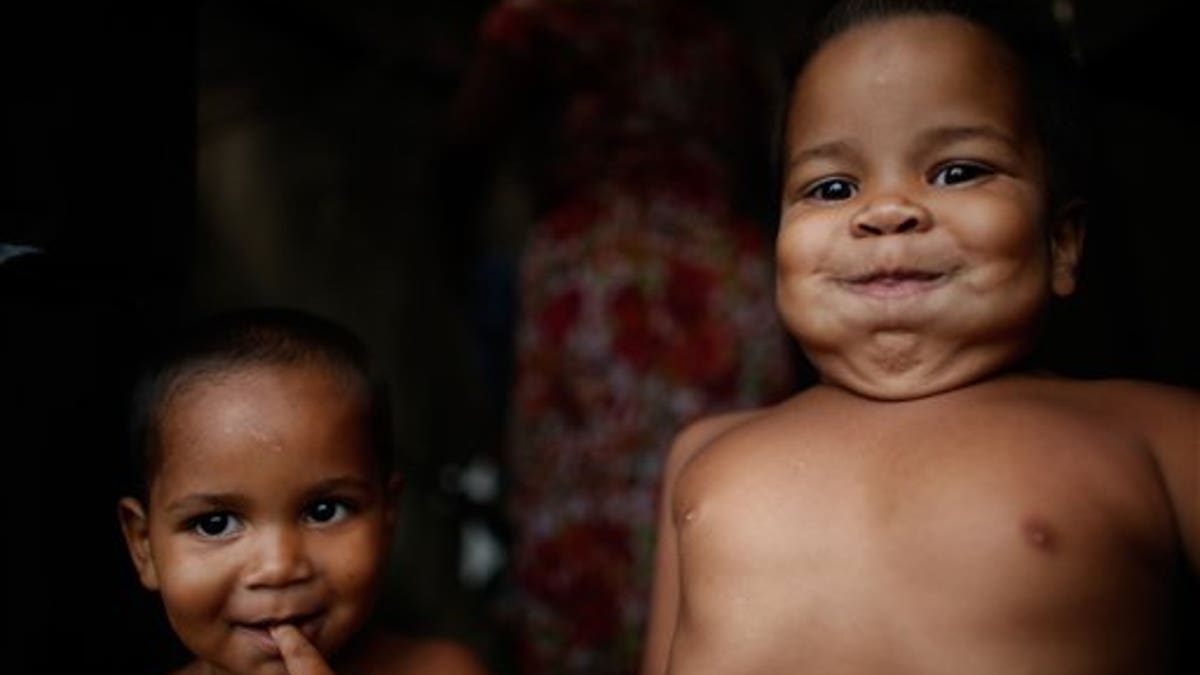
In this Feb. 8, 2015 photo, Miguel, 5, right, and Micael, 2, stand in their family's makeshift tent at a Homeless Workers Movement camp in Brasilia, Brazil. (AP Photo/Eraldo Peres)
There is a lot of talk today about ending poverty. The United Nations has offered a bold challenge to end extreme poverty by 2030. The World Bank has accepted the challenge, making it their goal to reduce extreme poverty to less than 3 percent in the same timeframe.
This is good news for those living on less than $1.25 a day.
But only if it’s possible.
If the past is a good predictor of the future, then what has $2 trillion in humanitarian aid produced over the past 50 years? Of the 7 billion people living on Earth, the bottom billion lives on a $1.25 a day or less. This is extreme poverty. However, this is far better than it used to be. In 1981, 52 percent of the world lived in extreme poverty. Today, it’s about 20 percent.
So the trillion-dollar question is this: To what extent did aid produce these results?
Ending extreme poverty is possible, but it must be tackled from the bottom up.
The answer depends on which report card you read.
Ending extreme poverty is possible, but it must be tackled from the bottom up.
If we consider government-to-government aid, the grade is low, some would say failing. The report card on private philanthropy fares much better. And, if we look at aid through the lens of economic growth, the grade is even higher. Much of the reduction in poverty levels over the past 30 years is a result of economic growth, especially in places like China and India. Some say aid was a likely catalyst for such growth.
But how something is financed is not necessarily the best predictor of impact. The real test is what people living in poverty say.
Mothers in sub-Saharan Africa say their children are nearly twice as likely to live beyond their 5th birthday. World Relief, the organization I serve, saw infant and child mortality rates decline by 49 percent and 42 percent, respectively, through a child survival project in Mozambique. Farmers in Nicaragua point to their exports to Europe and the United States. Clients in Malawi jubilantly tell me they “cannot believe they have 2 million kwacha,” the equivalent of $5,000, to send their kids to school, pay unexpected medical bills, or add protein to their family’s diet.
For these mothers, farmers and clients, ending extreme poverty is real and within reach. Such an audacious goal takes grass-roots initiative. It requires ideas, programs and models that inspire leadership, offer intrinsic incentives, and hold people accountable to their goals. It believes in the potential, resilience, faith and perseverance of people trapped in poverty, treating them as agents of change rather than helpless victims. It calls upon their dreams, aspirations, and their faith to put action to their hope for a better future.
Ending extreme poverty is possible, but it must be tackled from the bottom up, with, not for, the people affected most helping lead the charge. It must involve all of us -- private and public sectors, academia, civil society and faith communities. Better policy, both macro and micro, financing for economic growth, anti-corruption measures, investment in gender equality are all necessary, but none of these are sufficient. Unless these measures are pursued in tandem with proven, grass-roots solutions, we will not succeed.
More than 1 billion people live in extreme poverty. About 800 million people go to bed hungry every night, and 20,000 kids die each day from poverty-related disease. In 2030, will we celebrate the accomplishment of an incredible feat, one which no generation before us believed possible? Can we envision a day when extreme poverty stops?
We have the opportunity to shape history by scrapping ineffective conventional ideas for ones that bring lasting impact, involving people across all domains of influence, and making heroes of those who suffer. The world longs for this kind of change. Let’s not miss our moment in history. Ending extreme poverty is possible.
Stephan Bauman is President and CEO of World Relief, which empowers the worldwide church to overcome global poverty and injustice, and author of the new book Possible: A Blueprint For Changing How We Change the World.








































